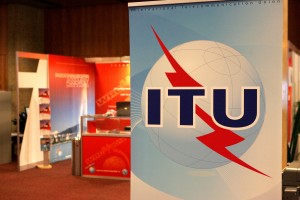
After more than 40 years of operation, DTVE is closing its doors and our website will no longer be updated daily. Thank you for all of your support.
Arab and African countries press for second digital dividend at WRC
 A potential area of disagreement is emerging at the World Radiocommunication Conference (WRC) in Geneva over the future of the 700MHz frequency currently used by broadcasters.
A potential area of disagreement is emerging at the World Radiocommunication Conference (WRC) in Geneva over the future of the 700MHz frequency currently used by broadcasters.
The Arab and African regional administrations are pressing for the International Telecommunication Union (ITU) to allocate the 700MHz band to mobile services.
The previous WRC in 2007 had allocated the so-called digital dividend spectrum in the 800MHz band to be made available for mobile services after digital switchover. However, in Africa and the Middle East, the 800MHz band is already widely used for government applications, while few countries have implemented digital-terrestrial broadcasting.
Countries in the region could use the new, more efficient DVB-T2 modulation scheme for digital broadcasting, which would enable them to allocate the under-used 700MHz band for mobile services, demand for which is exploding across the region.
A number of national regulators in Asia and the Americas have already allocated 700MHz spectrum for mobile broadband services, following WRC 2007.
The European Broadcasting Union has noted that the use of the 700MHz band for non-broadcasting services would cause problems in Europe, where long-term broadcasting licences have been granted for terrestrial services. Broadcasters are keen to reserve the 700MHz band for future broadcast applications. Moves to award a so-called ‘second digital dividend’ would be highly unwelcome in countries in Europe where digital-terrestrial broadcasting is widely used as a means of receiving TV signals.
While a reallocation of spectrum in the 700MHz band could align Europe with the rest of the world, defenders of use of the spectrum for broadcast applications maintain that there is already sufficient spectrum available for mobile applications in non-UHF bands, notably the 2.5GHz band, which is well-suited to meeting peak load requirements in densely populated urban areas. It is argued that the use of UHF is more suited to less populated areas, where peak loads do not normally occur.
Discussions are continuing at the conference with a view to finding a compromise. Delegates are also likely to seek to shape the agenda at the next WRC in 2015. WRC 2012 runs until February 17.


